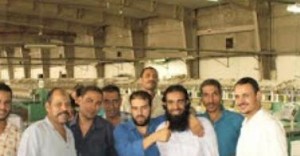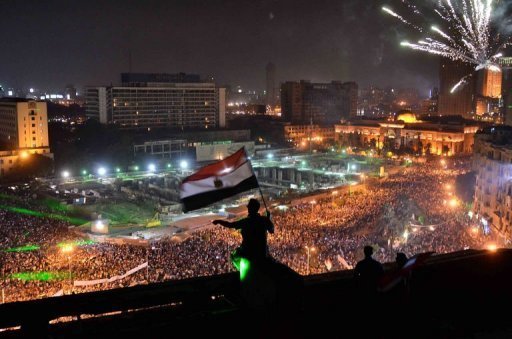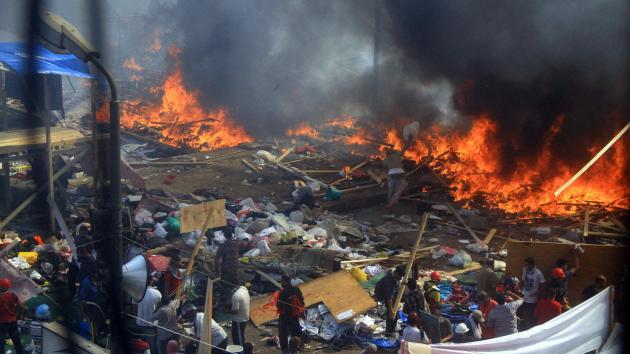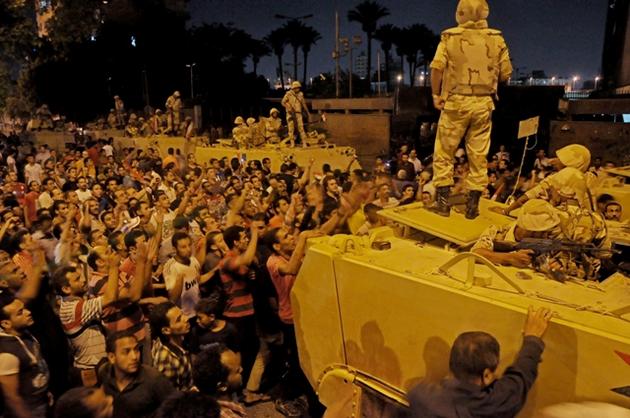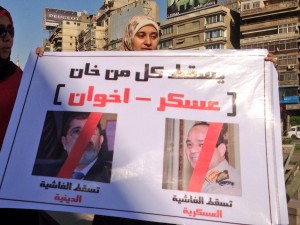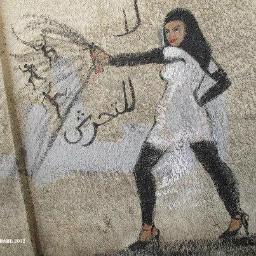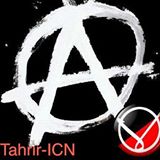Στο άρθρο του J. Charbel που ακολουθεί, παρουσιάζεται η τωρινή στιγμή του εργατικού κινήματος στην Αίγυπτο. Σε μια συγκυρία στην οποία τα δικαστήρια υπό την πίεση της “αιγυπτιακής άνοιξης” του 2011 πήραν αποφάσεις επανεθνικοποίησης εργοστασίων που είχαν ιδιωτικοποιηθεί σε πολύ χαμηλές τιμές την τελευταία περίοδο του καθεστώτος Μουμπάρακ, αλλά το κράτος στη συνέχεια δεν τις υλοποιεί, οι εργάτες παλεύουν να ξεκινήσουν να λειτουργούν τα “εργοστάσια τους” μόνοι τους. Το κράτος καταστέλλει αυτές τις προσπάθειες τους, καθώς προτιμά να πληρώνει σε όλους μόνο τους πολύ χαμηλούς βασικούς μισθούς παρά να ξεκινήσει άμεσα την παραγωγή με χαμηλότερο βαθμό εκμετάλλευσης από αυτόν που απαιτείται για να ξεπεραστεί η κρίση.
Οι εργάτες προτείνουν ακόμη και να ξεκινήσουν την παραγωγή χωρίς μισθό για ένα μήνα για να αποδείξουν “ότι μπορούν να κάνουν τα εργοστάσια να λειτουργήσουν ξανά”. Οι εργάτες για να ξεκινήσουν όμως την παραγωγή δεν χρειάζονται μόνο την εργασιακή τους δύναμη (ακόμη κι αν την προσφέρουν δωρεάν) και τις όποιες πρώτες ύλες παραμένουν αποθηκευμένες στα παρατημένα εργοστάσια. Χρειάζονται και ρεύμα ή αέριο το οποίο το κράτος αρνείται να τους παρέχει καθώς τα προηγούμενα αφεντικά έχουν αφήσει χρέη και χρειάζονται επιδοτήσεις από το κράτος για νέες παραγγελίες υλικού. Με άλλα λόγια οι εργάτες χρειάζονται κεφάλαιο, στην πραγματικότητα χρειάζονται χρήμα ως κεφάλαιο, δηλαδή, χρειάζεται να τους δείξει το κεφάλαιο εμπιστοσύνη ότι είναι ικανοί να παράξουν υπεραξία εκμεταλλευόμενοι τους εαυτούς τους.
Αυτή τη στιγμή και χάρη στην ώθηση που τους έδωσαν οι ταραχές του 2011 και ο συνεχιζόμενος αγώνας τους από τότε, απαιτούν αυτό το χρήμα ως κεφάλαιο από το κράτος, αλλά το δράμα τους είναι ότι παρά το γεγονός πώς προτείνουν να δουλέψουν αρχικά ακόμη και χωρίς μισθό το κράτος δεν τους δανείζει. Το κράτος της Αιγύπτου από τη σκοπιά του προσπαθώντας να εξυπηρετήσει τα συμφέροντα των καπιταλιστών δεν τους δανείζει μέχρι να τους φέρει σε ακόμη πιο δυσμενή θέση. Είναι αρκετά πιθανό στη συνέχεια να πρέπει οι εργάτες να στραφούν στις αγορές κεφαλαίου ή να τα παρατήσουν και να αποδεχτούν έναν νέο ιδιώτη ιδιοκτήτη για να έχουν επιτέλους δουλειά. Αυτή η περίοδος, στο βαθμό που πληρώνονται όσοι δεν είχαν απολυθεί το προηγούμενο διάστημα με το βασικό μισθό, είναι μεταβατική και η πλάστιγγα θα γείρει προς τη μία ή την άλλη μεριά ανάλογα με τους συσχετισμούς της ταξικής σύγκρουσης.
Αυτό που προκύπτει όμως από το εξαιρετικά χρήσιμο παράδειγμα της Αιγύπτου είναι ότι η αυτοδιαχείριση σήμερα στις πραγματικές συνθήκες της ταξικής πάλης του χρηματοπιστωτικού καπιταλισμού σε αναδιάρθρωση δεν αποτελεί ορίζοντα επανάστασης. Αντίθετα όπως γράφαμε πρόσφατα εδώ: «μήπως η ουτοπία [σ.σ. της αυτοδιαχείρισης] είναι ένας αναγκαίος συµβιβασµός, από τη στιγµή που, στον ορίζοντα αυτόν, δεν τίθεται σε αµφισβήτηση το ίδιο το χρήµα ως κεφάλαιο, η ίδια η µορφή των µέσων παραγωγής ως µέσων παραγωγής αξίας;”
Δύο απαντήσεις μπορούν να δοθούν σ’αυτό το ερώτημα ανάλογα με την εξέλιξη της ταξικής πάλης, όχι μόνο στην Αίγυπτο, αλλά διεθνώς: Ή “οριακά το µοντέλο του αυτοδιαχειριζόµενου χρηµατοπιστωτικού καπιταλισµού θα µπορούσε να αποτελεί τον ορίζοντα της αντεπανάστασης στην ενδεχόµενη κορύφωση αυτού του κύκλου αγώνων. Αυτός ο αντεπαναστατικός ορίζοντας είναι ειδικά σήµερα δυνατός που ο καπιταλισµός είναι ήδη χρηµατοπιστωτικός µε την έννοια ότι η µορφή Χ-Χ΄ τείνει να αποτελεί ολοένα και περισσότερο τον ειδικό τρόπο µορφοποίησης της κοινωνίας από τη σχέση κεφαλαίου-εργασίας» (από το ίδιο κείμενο) ή η αυτοοργάνωση θα αποτελέσει το πρώτο βήμα της επανάστασης, το οποίο στη συνέχεια η επανάσταση θα πρέπει να ξεπεράσει καθώς αυτό θα αποτελεί εμπόδιο για τη συνέχιση της.
Ακολουθεί το πολύ ενδιαφέρον άρθρο του J. Charbel από εδώ:
Workers struggle to self-manage | Mada Masr
Weary of governmental inaction regarding the court-ordered renationalization of their companies, many workers have sought to take matters into their own hands through experiments in workers’ self-management — only to find that the government is actively obstructing their efforts.
Last month, authorities pulled the plug on one such experiment at the Tanta Flax Company, which has been awaiting renationalization for over two years.
